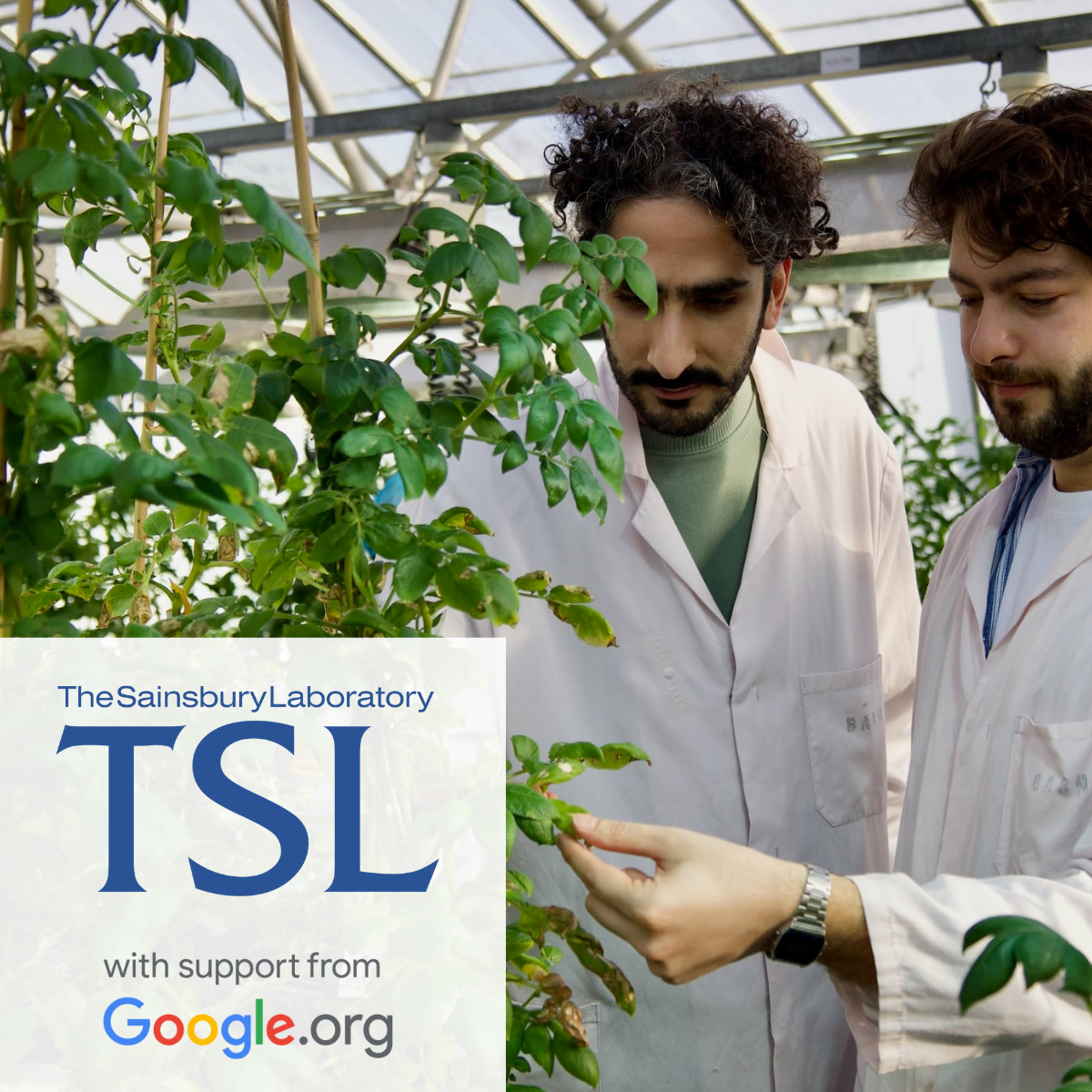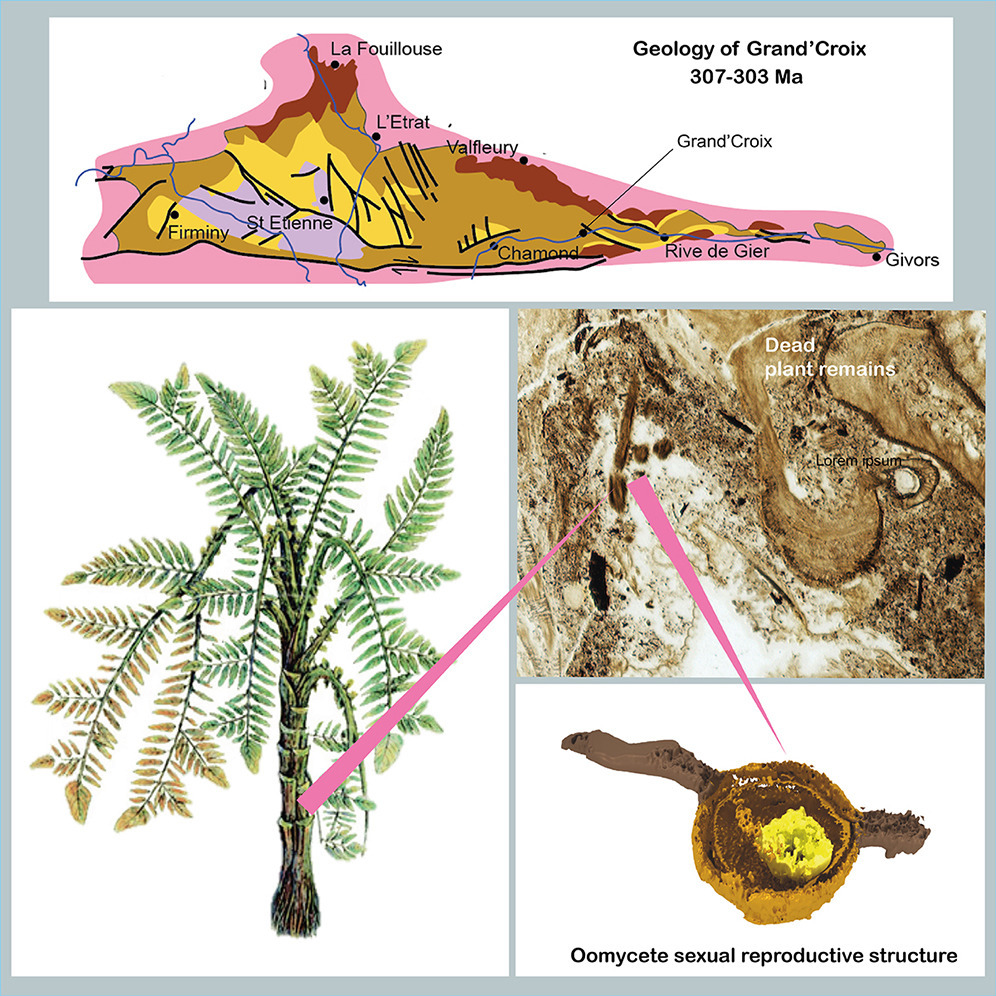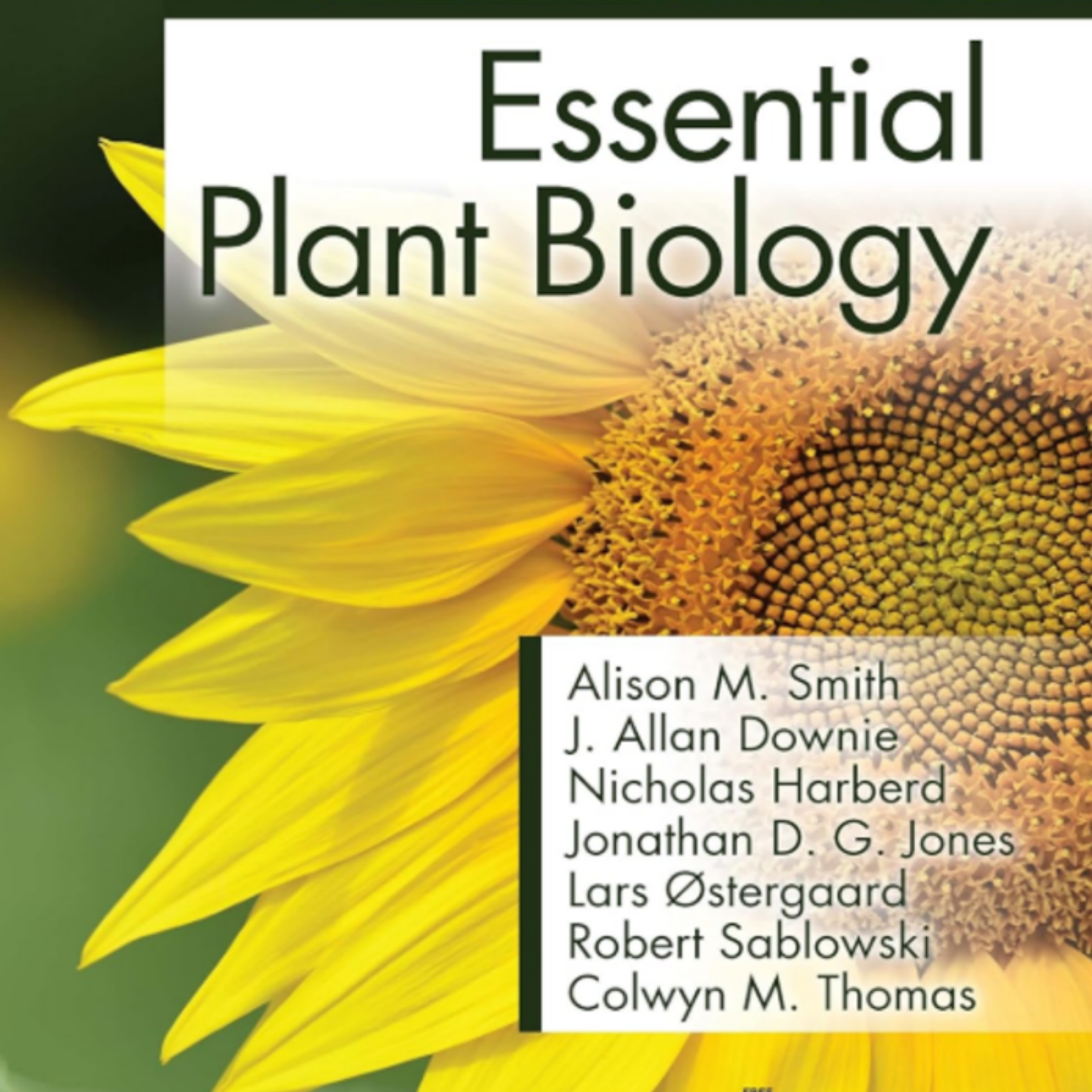TSL postdoc and alumna celebrate prestigious euro grants
We are delighted to announce that Dr Thorsten Langner, a postdoctoral scientist in the Kamoun lab, was awarded the prestigious Starting Grant of up to €1.5 million by the European Research Council (ERC). We were equally excited to hear that TSL alumna and visiting scientist at the Talbot group, Dr Miriam Oses-Ruiz, was also successful in her ERC grant application.
It was clear from the excited energy at the lab's impromptu double celebration that TSL members view the successes of early career researchers as our proudest achievements. As a forward-looking institute, we believe that our greatest impact for a sustainable future will be through the development of leaders in plant science.

Four hundred and eight researchers have won this year’s ERC Starting Grants. It will help excellent younger scientists, who have 2 to 7 years’ experience after their PhDs, to launch their own projects, form their teams and pursue their most promising ideas.
With his grant, Thorsten plans to provide fundamental new insights into how our valuable cereal crops are infected by the devastating blast fungus, Magnaporthe oryzae.
“Wheat blast disease has become one of the most concerning plant diseases as it has developed into a global pandemic in recent years and has the potential to decimate wheat production around the globe." he says.
"This fungus attacks specific targets in wheat to promote disease. In my ERC project, I will turn these weak spots of the plant into a defense strategy to generate wheat varieties that are resistant to blast fungus infections."
Thorsten has developed a multidisciplinary research program that leverages fundamental insights in pathogen-host plant interaction to guide bioengineering of the plant immune system.

Miriam also plans to deepen our understanding of how the blast fungus causes disease in plants, and how it can potentially develop resistance to fungicides. Understanding these mechanisms in an agricultural setting is crucial for better informing disease management strategies in the future.
"There is an old aphorism that says 'know your enemy so you can fight it'." says Miriam, "We want to look at the variability between cells in the blast fungus, M. oryzae, and how and why that is generated. We hope to determine the molecular mechanisms that generate this cellular heterogeneity and understand its role in the infection biology pathogens.”
Now a Ramon y Cajal Research Fellow at the University of Navarra in Spain, Miriam is currently back at TSL for 8 weeks to carry out collaborative work in the Talbot group. Her ERC project will also involve the Talbot group as well as Frank Menke who leads the TSL Proteomics group.
Miriam shares that she's very thankful for obtaining this competitive and prestigious grant and grateful to all the exceptional examples of professionals she has encountered during her career - particularly her lab colleagues and group leaders at TSL and her new colleagues at her new institution.
"I need to especially thank Nick," she says, "who has been my mentor and has been supportive since the beginning. I am also very thankful to the comments of the reviewers and the members of the panel LS9, for the discussion and the experience of the interview."

Nick Talbot, Executive Director of The Sainsbury Laboratory says, “I am very proud that members of our TSL community have won prestigious ERC Starting Grants. It is a testament to the extraordinary research environment of TSL and the ideas generated here by our early career researchers and alumni. These are very exciting projects at the very forefront of research in plant diseases. I am looking forward to hearing of the progress that Thorsten and Miriam make in these studies, which promise to be really fascinating.”
Mariya Gabriel, European Commissioner for Innovation, Research, Culture, Education and Youth, said: “We are proud that we are empowering younger researchers to follow their curiosity. These new ERC laureates bring a remarkable wealth of scientific ideas, they will certainly further our knowledge and some already have practical applications in sight. I wish them all the best of luck with their explorations.”
About the ERC
The ERC, set up by the European Union in 2007, is the premier European funding organisation for excellent frontier research. It funds creative researchers of any nationality and age, to run projects based across Europe. The ERC offers four core grant schemes: Starting Grants, Consolidator Grants, Advanced Grants and Synergy Grants. With its additional Proof of Concept Grant scheme, the ERC helps grantees to bridge the gap between their pioneering research and early phases of its commercialisation. The ERC is led by an independent governing body, the Scientific Council. Since 1 November 2021, Maria Leptin is the President of the ERC. The overall ERC budget from 2021 to 2027 is more than €16 billion, as part of the Horizon Europe programme, under the responsibility of the European Commissioner for Innovation, Research, Culture, Education and Youth, Mariya Gabriel.
The status of ERC funding in the UK
The Trade and Cooperation Agreement between the European Union and the United Kingdom allows for associating the UK to the current EU research and innovation funding programme, Horizon Europe, subject to the adoption of a Protocol. As this Protocol has not been adopted so far, the UK is still considered “non-associated” to Horizon Europe. Therefore, the successful proposals of applicants based in a country in the process of associating to Horizon Europe will be eligible for funding only if the relevant Horizon Europe association agreement applies by the time of the signature of the grant agreement. However, successful applicants from UK host institutions can still be funded, provided that they move to a host institution in an eligible country.


